The Lost Art of Reading Natures Signs
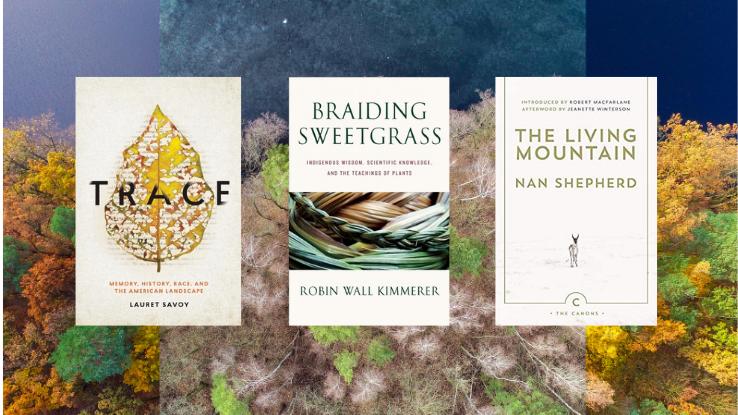
Now that we're more than than halfway through yr ii of the COVID-19 pandemic, it's easy to feel a fleck disconnected from the natural world. Betwixt stay-at-home orders, travel restrictions, and the of import measures nosotros've been taking to assistance stop the spread and keep people in our communities safe since March 2020, nosotros haven't had much of a chance (besides our daily walks) to go out at that place and explore the neat outdoors.
Luckily, books are a fantastic mode to indulge in some pandemic escapism and acquire about nature, wild fauna and conservation in the procedure. That's why we're celebrating the National Parks Service's 105th Anniversary with this roundup of nonfiction books that can assistance you slow down, pay attending to and reconnect with the natural world.
Interested in learning more about climate change and the environs? Check out our books nearly climatic change reading listing and our roundup of movies and Goggle box shows virtually environmental issues.
"Vesper Flights" by Helen MacDonald
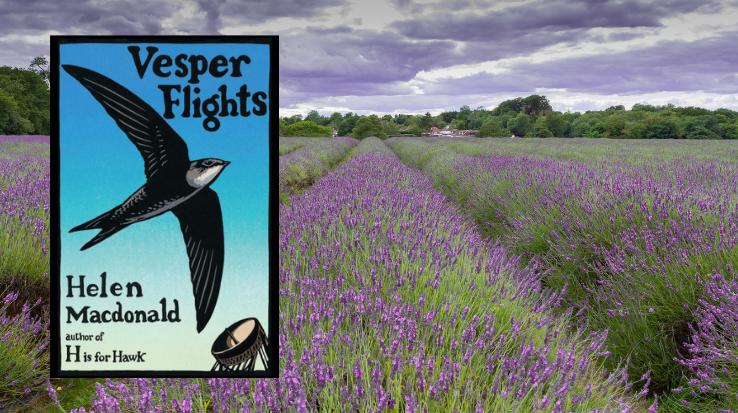
Helen MacDonald'due south Vesper Flights, released in 2020, is a collection of previously published and new essays about the complex relationship between humans and the natural world. Roofing topics like mushroom foraging, the 2022 solar eclipse and watching songbird migrations from the top of the Empire State Edifice, MacDonald's essays serve as reminders of the pricelessness of the institute and animal life surrounding us.
Vesper Flights is MacDonald'south followup to H Is for Militarist, her critically acclaimed memoir about grief, the sudden death of her father and her experiences grooming Northern Goshawks. H Is for Hawk is the recipient of the Samuel Johnson Prize and the 2022 Costa Volume of the Yr award.
Helen MacDonald, who grew up in Surrey, England, is a naturalist, lecturer and faculty member at the University of Cambridge Department of History and Philosophy of Science.
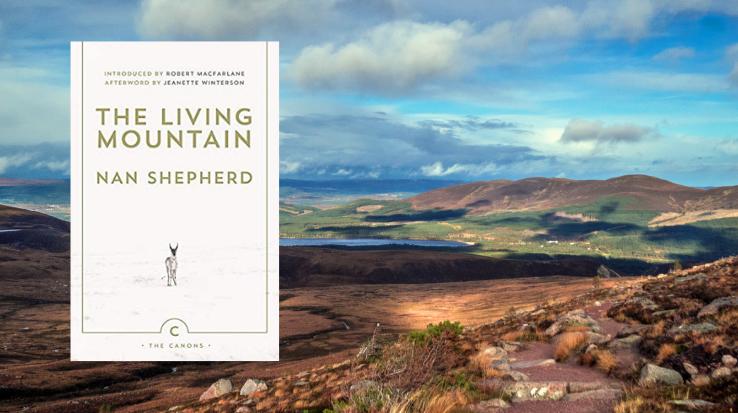
The Cairngorm Mountains of northeast Scotland provide the setting for poet and backwoodsman Nan Shepherd's meditative, lyrical book nearly the intersection betwixt mountains and the human imagination. Hailed past The Guardian equally "the best book ever written on nature and landscape in Britain" and described by author Jeanette Winterson equally "a kind of geo-poetic exploration of the Cairngorms," The Living Mount vividly depicts the varied and diverse mural of the Cairngorms in all seasons and weather.
Written during the later years of World War II merely not published until 1977, almost the end of Shepherd's life, The Living Mountain is the consequence of Shepherd'south lifelong obsession with the mountain range and her conviction that "Place and a mind may interpenetrate till the nature of both is contradistinct."
Shepherd, born in 1893, lived in her hometown of Aberdeen, Scotland, for most of her adult life. She worked as a lecturer in English at the Aberdeen Higher of Education and published several novels ready in Northern Scotland.
"Braiding Sweetgrass" past Robin Wall Kimmerer
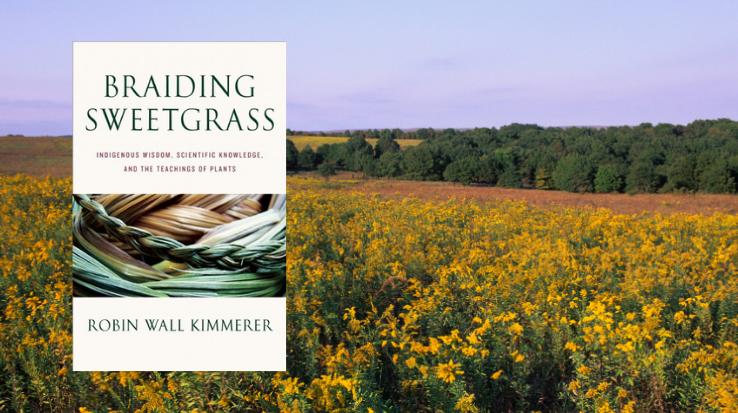
In this ode to everything the plant world has to teach humankind, Robin Wall Kimmerer draws on her experience every bit an Ethnic scientist and botanist to tell a story about "indigenous means of knowing, scientific knowledge, and the story of an Anishinaabekwe scientist trying to bring them together in service to what matters most" in Braiding Sweetgrass.
Sweetgrass (scientific proper name: Hierochloe odorata), a found that'southward sacred to the Potawatomi people, is central to the book. "It is called wiingaashk – the sweet-smelling hair of Mother Globe. Breathe it in and yous start to remember things you didn't know you'd forgotten," Kimmerer writes in the preface.
Through a series of interwoven narratives, Kimmerer advocates for a more reciprocal and interconnected relationship betwixt humans and the natural globe. Braiding Sweetgrass is a timely and urgent reminder of the value of Indigenous constitute knowledge. Merely it's as well an investigation into how this Indigenous noesis can work hand in paw with the scientific method to support life on Globe and ultimately "heal our relationship with the world," as Kimmerer writes.
Robin Wall Kimmerer is a botanist, a member of the Citizen Potawatomi Nation and an Indigenous scientist. She is the author of Gathering Moss: A Natural and Cultural History of Mosses. Kimmerer is also an American Distinguished Instruction Professor of Environmental and Forest Biological science at the State University of New York Higher of Environmental Scientific discipline and Forestry.
"The Abode Place: Memoirs of a Colored Man's Beloved Affair with Nature" by J. Drew Lanham
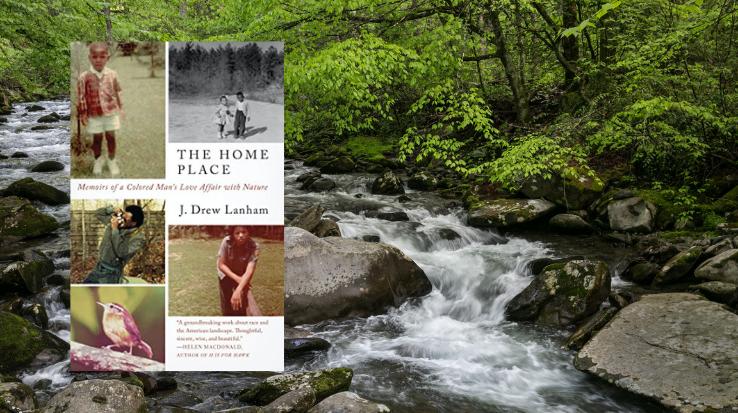
In his 2022 memoir The Abode Place, writer J. Drew Lanham traces his family unit's history back to Edgefield Canton, Due south Carolina, where several generations of his ancestors were enslaved prior to the Civil War. Characterizing Edgefield County every bit somewhere "piece of cake to laissez passer by on the style somewhere else," Lanham interrogates his own complex human relationship with the canton, and, by extension, how living in Edgefield Canton shaped his identity as a Blackness homo living in the rural Southward in the 1970s.
The Home Place was listed every bit a "Best Book of 2016" by Frontwards Reviews and was a Nautilus Argent Laurels Winner. William Souder, author of Under a Wild Sky, described the memoir as "a wise and deeply felt memoir of a black naturalist'due south improbable journey." Helen MacDonald, author of Vesper Flights, characterized The Home Identify as "a groundbreaking work about race and the American landscape, and a deep meditation on nature, selfhood, and the nature of home."
Lanham is a birder, naturalist and hunter-conservationist, too as the Alumni Distinguished Professor of Wildlife Environmental and Master Teacher at Clemson University. His essays about the natural world can be found in Orion, Flycatcher and Wilderness.
"Honouring High Places: The Mountain Life of Junko Tabei" by Junko Tabei
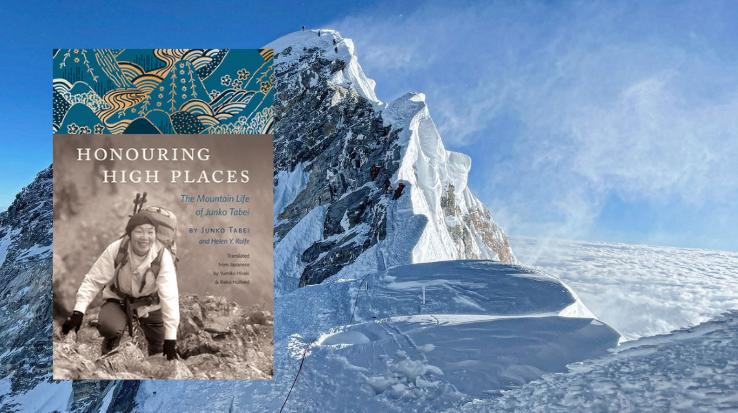
For readers who are looking for a high-stakes adventure narrative, Honouring High Places: The Mount Life of Junko Tabei fits the beak. Legendary Japanese mountaineer Junko Tabei was the first adult female to summit Chomolungma (Everest) and climb the Seven Summits. Her memoir, released for the beginning time in English in 2022 (previously only available in Japanese), provides a fascinating glimpse into Japanese mountaineering culture and Tabei's groundbreaking life.
Honouring High Places opens with Tabei's recollections from leading the first all-women team to summit Chomolungma, including a harrowing encounter with several avalanches on the mountain'southward slopes. In the memoir's diaristic format, Tabei likewise writes nearly the gender norms that shaped her childhood, her quest to climb Mount Tabor, her cancer diagnosis later in life, and the aftermath of the 2011 Fukushima earthquake and tsunami.
"2 Trees Make a Woods" by Jessica J. Lee
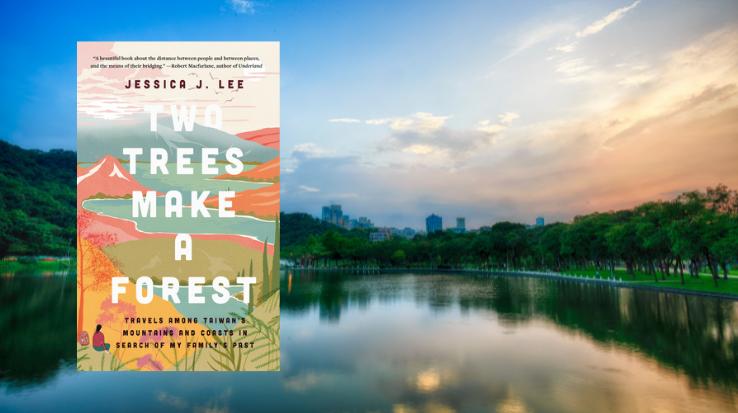
Jessica J. Lee'south 2022 book, 2 Trees Brand a Forest: In Search of My Family's Past Amongst Taiwan'due south Mountains and Coasts, is delightfully difficult to categorize. Function historical narrative, part travelogue and part memoir, Ii Trees Make a Forest starts with Lee's discovery of messages written past her grandfather, an immigrant from Taiwan. This leads Lee to travel to Taiwan, her family's ancestral home, where she discovers a new mode to remember about the links between her family lineage and the identify where her ancestors lived.
Lee traces the history of Taiwan from the Qing era upwardly to nowadays day and writes eloquently well-nigh Taiwan's natural landscapes, in what Electric Literature calls "a poetic tour and anti-colonial reclamation of the isle through her descriptions of its flora, fauna, natural disasters, and political history."
Jessica J. Lee is a British-Canadian-Taiwanese author, historian, environmentalist and the founding editor of The Willowherb Review. Lee is the winner of the 2022 RBC Taylor Prize Emerging Writer Laurels and holds a doctorate in environmental history.
"Trace: Retentiveness, History, Race, and the American Landscape" past Lauret Savoy
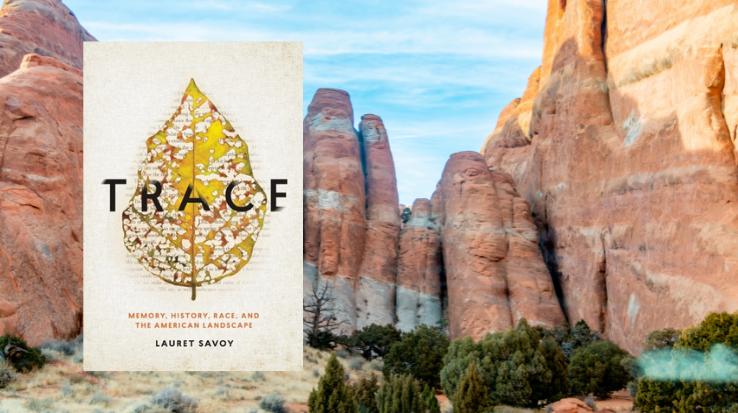
Over the grade of eight essays, Lauret Savoy investigates how American history and systemic racism take informed the way we think most place and regionality in Trace: Retention, History, Race, and the American Landscape. Savoy'southward training as a geologist gives her a unique perspective on the intersection of history and identify, and the result is a collection that author and conservationist Terry Tempest Williams has chosen "a crucial book for our time, a leap sanity, not a forgiveness, simply a reckoning."
Lauret Savoy is a adult female of African American, Euro-American and Native American heritage and is the David B. Truman Professor of Environmental Studies & Geology at Mount Holyoke College. Trace was the winner of the American Book Award (from the Before Columbus Foundation) and the ASLE Environmental Creative Writing Award and was a finalist for the PEN American Open up Book Award.
"Horizon" by Barry Lopez
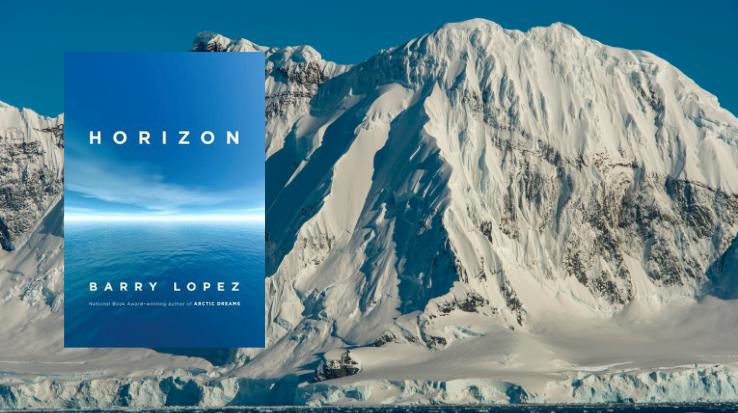
Barry Lopez's sweeping, globe-spanning travel memoir couldn't accept come up at a better fourth dimension. Released in Jan 2020, Horizon provided a much-needed fleck of escapism for readers sheltering in place and quarantining due to the COVID-19 pandemic. Lopez'due south memoir is focused on his time spent in half dozen regions — Coastal Oregon, the High Chill, the Galápagos Islands, the Kenyan desert, Australia's Botany Bay and the glaciers of Antarctica.
Every bit Lopez unravels the histories of these places, he also looks inward, reminding the reader that "to inquire into the intricacies of a afar landscape, and so, is to provoke thoughts almost ane's own interior mural, and the familiar landscapes of memory." Horizon too interrogates our Earth's future, asking what should be washed to irksome global warming and providing readers with real-world examples of the damaging impacts of climate alter.
Barry Lopez is the author of Arctic Dreams (winner of the National Book Award), Of Wolves and Men, and Crow and Weasel. He received fellowships from the Guggenheim, Lannan and National Science foundations. Lopez died in 2022 at the age of 75.
Source: https://www.ask.com/culture/nonfiction-nature-reading-list?utm_content=params%3Ao%3D740004%26ad%3DdirN%26qo%3DserpIndex
Post a Comment for "The Lost Art of Reading Natures Signs"